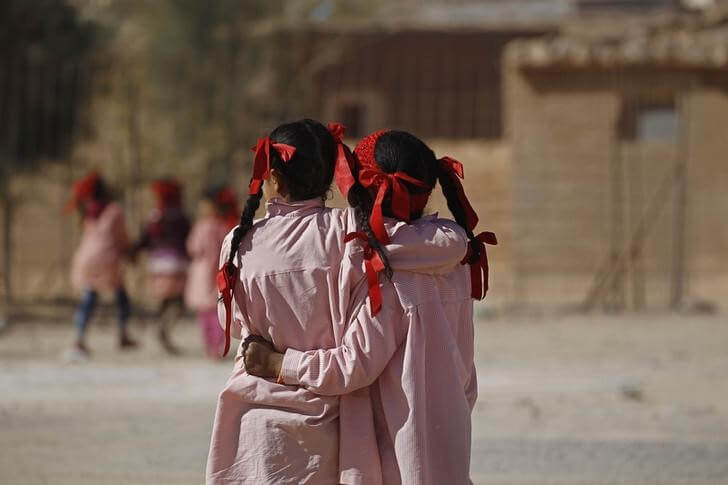By Matthew Ponsford
LONDON (Thomson Reuters Foundation) – Britain pledged 100 million pounds ($130 million) on Thursday to help educate girls in the world’s poorest countries in a move described by International Development Secretary Justine Greening as a post-Brexit bridge to the world. The funding, part of Britain’s ‘Girls Education Challenge’ project will help 175,000 girls in 18 countries who could not attend school due to poverty, child marriage or early pregnancy. Research published by development organization Voluntary Service Overseas said 63 million girls globally are out of school and two-thirds of illiterate adults are women.
Greening described the pledge as one of the “best bargains” in development investment the British government could make, saying it would build bridges with “trading partners of the future”, particularly in a post-Brexit world. “It’s in our interest to help people who are in poverty to get out of poverty, and it’s in our interest to see those countries develop, because they’ll become the trading partners of the future,” Greening told the Thomson Reuters Foundation at the first Girls’ Education Forum. “Of course for a Britain outside of the EU, having more markets to trade with is absolutely in our interest.”
UK-based development charities have voiced concerns since the Brexit vote on June 23 about the impact of the sharp falls in the value of the pound and expected losses in European Union funding for charities. A report by the Overseas Development Institute think-tank estimated the loss in value of the pound will cost developing countries $3.8 billion.
Greening said the Department for International Development (DFID) did not have specific plans to mitigate for the impact of the drop in the currency on development funding, but would continue its commitment to spend 0.7 percent of the country’s gross national income on overseas aid. “You always have exchange rates changes. That’s part and parcel of any development program,” said Greening.
When asked if DFID was planning to help charities with losses of EU funding, Greening said it was important that charities, government agencies and philanthropic institutions work together.
“We’re now on this path of a UK of the future that is going to be coming out of the EU,” she said.
“I think everybody has to adapt to what will be a new future for our country, but critically the key to success in development is working together in partnership”.
She said development challenges including girls’ lack of access to education “will still be there whatever’s happening domestically in the UK – whilst ever we’re going through our Brexit and re-negotiation”. “Putting them on our agenda, that’s not just the right thing to do for tackling poverty, actually it’s part of how we make sure Britain is a successful country in the future,” she said. ($1 = 0.7755 pounds)
(Reporting by Matthew Ponsford, Editing by Belinda Goldsmith; Please credit the Thomson Reuters Foundation, the charitable arm of Thomson Reuters, that covers humanitarian news, women’s rights, traficking, property rights and climate change. Visit http://news.trust.org)
Britain pledges funds to educate 170,000 girls in poor nations post-Brexit

By Matthew Ponsford

















